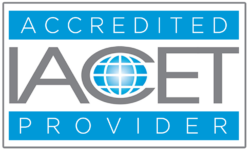“Achievement is, by dictionary definition, a product of struggle”
Let’s be honest, most of us enter the teaching profession with a passion to nurture children; it’s in our DNA. Walking into our classrooms we imagine we will be a hand to hold, the imparter of all knowledge, the map that guides through the pathways of least resistance. Our intent is pure; we want to make learning effortless and enjoyable, diminishing fear and the threat of failure. We want the best for our students. But is this the best we have to offer?
Times are changing in the 21st century
Employers, college professors, and community leaders of the 21st century are looking for a certain set of skills that may be hindered by our efforts to protect students from failure. These skills are different from traditional academic standards and refer to a broader set of knowledge, work habits, and character traits that are believed to be critically important to succeed in today’s world. So what does this mean for educators of the 21st Century learner?
A shift in thinking creates a new lens for viewing learning
Teachers can continue to be a nurturer in a different capacity. Imagine yourself as a facilitator of learning by talking less and listening more. Be the one who asks the questions that bring about more questions and enhances curiosity. Provide tasks that spark interest and require students to use their critical thinking and reasoning skills. Resist the temptation to reveal the answer, instead, encourage your students to continue working through challenging obstacles, even when they seem insurmountable. Convey the message that the journey is just as important as finding the end product. And finally, make sure to provide ample opportunities for collaboration and reflection to solidify the belief that we can all benefit from the voice of others.
These children that we nurture today are the world’s future. Let us cultivate creative problem solvers who persevere and flourish even in the face of potential failure.
We invite you to learn more about providing a productive struggle for your students by attending our Providing a Productive Struggle workshop on January 19.


